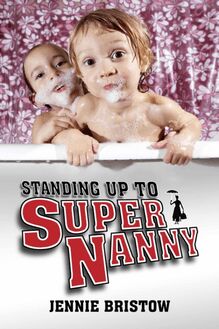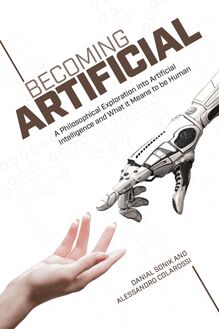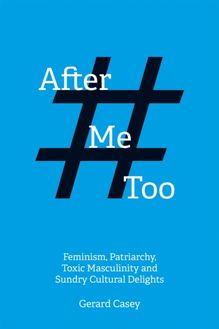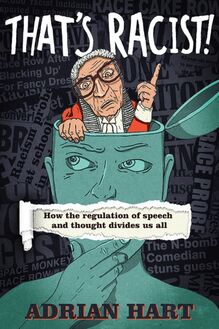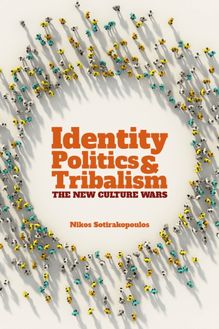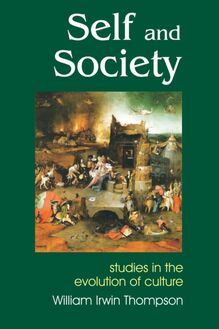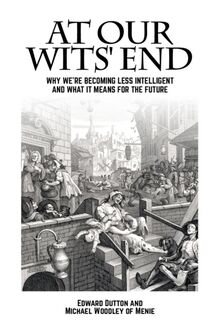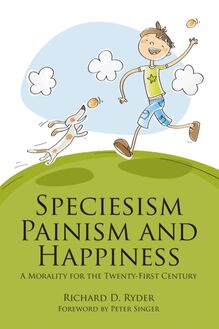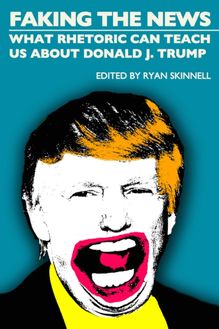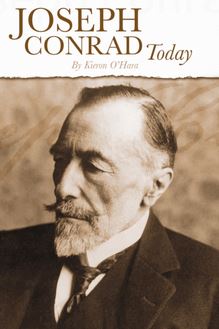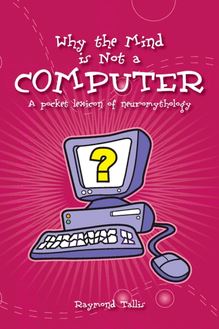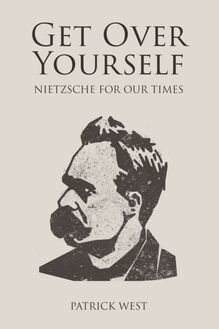Being Cultured , livre ebook
123
pages
English
Ebooks
2014
Vous pourrez modifier la taille du texte de cet ouvrage
Obtenez un accès à la bibliothèque pour le consulter en ligne En savoir plus
Découvre YouScribe en t'inscrivant gratuitement
Découvre YouScribe en t'inscrivant gratuitement
123
pages
English
Ebooks
2014
Vous pourrez modifier la taille du texte de cet ouvrage
Obtenez un accès à la bibliothèque pour le consulter en ligne En savoir plus
Publié par
Date de parution
09 avril 2014
Nombre de lectures
2
EAN13
9781845407612
Langue
English
Publié par
Date de parution
09 avril 2014
Nombre de lectures
2
EAN13
9781845407612
Langue
English
Title page
Being Cultured
in defence of discrimination
Angus Kennedy
SOCIETAS
essays in political
& cultural criticism
imprint-academic.com
Publisher information
Copyright © Angus Kennedy, 2014
The moral rights of the author have been asserted. No part of this publication may be reproduced in any form without permission, except for the quotation of brief passages in criticism and discussion.
Originally published in the UK by
Imprint Academic, PO Box 200, Exeter EX5 5YX, UK
Originally distributed in the USA by
Ingram Book Company,
One Ingram Blvd., La Vergne, TN 37086, USA
2014 digital version by Andrews UK Limited
www.andrewsuk.com
Dedication
For my mother and my father,
Authors of my beginning.
Epigraph
What calls me is that lifted, rough-tongued bell
(Art, if you like) whose individual sound
Insists I too am individual.
It speaks; I hear; others may hear as well.
--Philip Larkin
Reasons for Attendance
Civilization is not by any means an easy thing to attain to. There are only two ways by which man can reach it. One is by being cultured, the other by being corrupt.
--Oscar Wilde
The Picture of Dorian Gray
Acknowledgements
A number of friends have provided advice and assistance without which I could not have managed to conceive of this book, let alone write it. In particular I would like to thank Tim Black, Claire Fox, Jim Panton and Laura Susjin for their effort and patience in reading early drafts, and for all their insightful comments and opinions. The end result is immeasurably improved wherever I followed their suggestions.
I am grateful to Douglas Berrie and Martin Wynne for their indulgence of me over the years in too many things - not least the annual art tours - but especially in entertaining discussions about opera when perhaps they would have not.
Tiffany Jenkins, Dolan Cummings, Wendy Earle and everyone at the Institute of Ideas Arts & Society Forum have provided invaluable examples and ideas as well as a genuine space of freedom in which to try out my thoughts on culture at their expense. Professor Joe Friggieri for making me realise we can still talk of Beauty. Above all, and throughout, Claire Fox has been a Pole star, constant to all my twists and turns, my ups and downs, and, as such, naturally bears no responsibility for wherever I may have ended up.
The intellectual debt I owe to a certain tradition of thought I only have space to outline in thumbnail even though it is total: Cicero, Kant, Hegel, Marx, Sartre, Hannah Arendt, Christopher Lasch, Daniel Bell, and, more recently, Harold Bloom, Frank Furedi and Roger Scruton. Thanks too to Keith Sutherland and Jeff Scott for entertaining the original idea and everyone at Imprint Academic for making it real.
Thanks are not enough for Gae, whose insistent and trenchant refusal to be bluffed with philosophical verbiage and cavalier argumentation was one of my toughest obstacles, but whose daily encouragement proved my biggest support. If my text has become more readable as a result it is all down to her.
Finally, a special thank you to Claudia, whose entry into this world five years ago was the emergence of a perspective on my life that it very much wanted and in whose eyes I hope the existence of this essay is some small justification for all the time I have been reading in my study and not reading to you. I promise to make up for that and hope in the future you may write something for me.
A.E.K.
West Sussex, 2013.
Introduction
Culture plays a larger and larger part in our lives. Plays, exhibitions, films, books, experiences, performances and box sets: weekly culture listings groan under what is new, must-read, and have-to-see. Successive governments push culture as a fundamental part of education. Culture is instrumentalised in the pursuit of policy and social objectives. Arts organisations, cultural institutions and their mandarins work to increase access to audiences they see as excluded in some way. Culture seems to be everywhere and ever more important. There are more and more cultures on offer: African, Latin American, Chinese, Iranian, Australian... We might imagine ourselves living through a second Renaissance. And yet... we never seem to hear someone say they are cultured. The dominant idea of culture today is profoundly uncomfortable with the simple reality that one person might be more cultured than another. Let alone one culture better than the next: Western culture in particular. There is deep discomfort with the very idea of ‘high culture’ itself (high and low being seen as, at best, one these days, a cultural fusion). Even the attempt to argue that something might be better than something else is met with accusations of undeserved cultural authority, of an elitism that has somehow had its day: that smacks of an abuse of power and influence, resulting in the inevitable call to ‘check your privilege’. As a result, in the cultural sphere, we do not know whose authority - or whose opinion - is worthwhile. This lack of authority is often celebrated as the variety of multiculturalism and the spice of diversity. In this context, while culture may be ubiquitous, more accessible than ever before, it is, however, without heart or soul, weighed out by the pound, its spirit gone. Culture may be total but it is flat and shallow.
Being Cultured
‘Being’, ‘culture’, ‘discrimination’: each word demands many more books and far subtler thinkers than I. To that extent, this is a rash book. My original intention was to restrict it to a critique of the prevalent instrumentalist approach to the arts. How theatre, say, is increasingly treated as a means to an end (such as a feeling of wellbeing or civic enthusiasm in the audience). This process is well documented and has been widely discussed: the overt politicisation of arts funding under New Labour even provoked something of a backlash in the last decade. [1] Yet the attempt to weigh and measure, to make the arts wash their face, continues. The latest project by the UK’s Arts & Humanities Research Council, which promises to ‘define a framework for identifying and evaluating the different components of cultural value’, is just the most recent example of an ongoing trend to attempt the quantification of the unquantifiable: to confuse value with cost, goodness with benefit, and to retreat from idealism to crude pragmatism. [2] Against the demand that the arts justify themselves as being useful, I wanted to make an argument for the value of the arts in and of themselves - an intrinsic defence - and, at the same time, put forward an undoubtedly unpopular - and deliberately provocative - argument for cultural elitism. By which I mean an argument for standards: a defence of aesthetic judgements such as this is beautiful and, equally important, but often much harder, that is ugly.
Every time I tried to limit my scope in this way, however, I found that I was unhappy with just making an impassioned defence of art for art’s sake. I became increasingly uncomfortable with what can be a superficial formalism with no reference to the content of art. Art for art’s sake can, after all, sit comfortably with a relativist, post-modern, approach to the valuation of culture: it’s good because it’s art, or because it problematises the concept of art, or just because I like it, and that’s the end of argument. For me the heart of the issue is that we should try and become better at knowing and judging what is beautiful and what is not, what is good and what is not: what truth; and what lies. There is, I shall argue, a moral content to art: at least in the sense that aesthetic judgements - discriminating between what is beautiful and what is less so - are more than just a matter of saying what I like . They express the idea that you ought to like it too: because it is beautiful and true and, if my reason can apprehend that, then so should yours. Which is equally to express the belief that a world in which we were all better at discerning the beautiful would be a more reasonable world. Culture is not like science but expresses our accumulated knowledge of how humans should be and what that is like: it is a reflection to us of our own humanity; we are both the object and subject of art.
As a result I kept sliding into an exploration of the extent to which art can be said to be morally instrumental. Not in the sense of teaching lessons for living, but at least to the extent that the arts - in their production and reception - represent what Sartre, in his examination of how literature works, called a ‘gift of freedom... an appeal to freedom’. [3] I found that attempts to exercise one’s freedom to discriminate - even the very use of the phrase ‘good taste’ - are met with hostility and scorn: that discrimination is seen as a throwback to a less enlightened time. That what is valued is a culture that is total rather than discriminate: without limit or border, value or distinction. And I thought that something important had been lost: namely any wider social validation and support for the individual project of trying to be cultured. If anything today we look to acculturate the individual into society: to restrict, rather than enhance, his freedom. That may be an excuse for my intemperance with the terms of the discussion of culture today and, to the degree that comes across in this book, I do not apologise, though I do for my failure to resist the attempt to tackle the all-too-broad question of the totality of culture on the one hand and the possibilities still open to us in terms of the free, aesthetic, moral subject on the other.
The question that came to occupy me more and more was to what extent we can still rely on e
